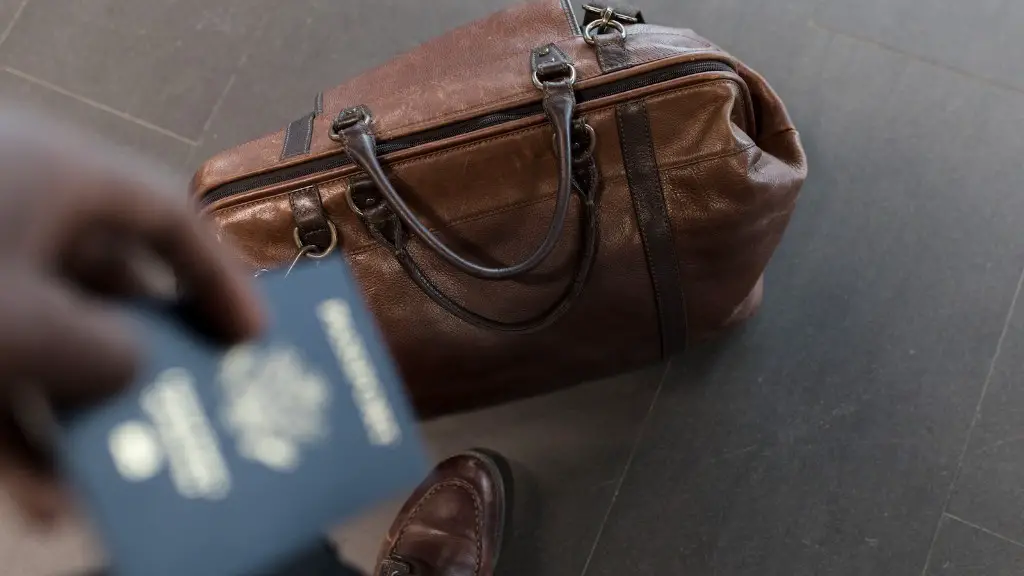If you have a kidney disease and require regular dialysis treatments, you may be wondering if your travel insurance will cover the cost of your treatments while you’re away from home. The answer to this question depends on the type of insurance you have and the specific policy details. Some insurance policies will cover the cost of dialysis treatments if you need them while traveling, while others will not. It’s important to read the fine print of your insurance policy to determine whether or not you’ll be covered for dialysis treatments while traveling.
No, travel insurance does not typically cover dialysis.
Can I get travel insurance for dialysis?
There are a few things to keep in mind when searching for travel insurance as a dialysis patient. First, be sure to disclose your condition to the insurance company. Many policies have exclusions for pre-existing conditions, so it’s important to be upfront about your health. Second, consider what type of coverage you need. Many policies have options for medical evacuation and emergency medical expenses. finally, compare quotes from multiple insurers to find the best rate.
If you plan to travel outside the US, it’s important to check with your insurance provider to see if your policy will cover the cost of dialysis while you’re away. Many private insurance plans do not cover dialysis abroad, so you may be responsible for the full cost of treatment. This can be a significant expense, so it’s important to factor this into your travel planning.
Can I get travel insurance if I have kidney disease
Kidney related conditions are not automatically covered by travel insurance policies. This means that if you have a kidney related condition, you will need to declare it to your travel insurance provider. Otherwise, you may not be covered for any treatment that you may need while abroad.
There are a few things to keep in mind if you are a dialysis patient and considering foreign travel. First, be sure to check with your doctor or renal care team to make sure that travel is safe for you. If you are on in-center hemodialysis, you will need to make arrangements for dialysis while you are away. Home hemodialysis and peritoneal dialysis patients will need to make sure they have enough supplies for their treatments while they are away. It is also important to have travel insurance that covers emergency medical care, in case you should need it while you are away from home. With a little planning, foreign travel can be a fun and rewarding experience for dialysis patients of all modalities.
How do you fly with dialysis?
If you have a portable dialysis machine, it’s important to know your rights when travelling by airplane. Airlines are not allowed to charge you for the machine as additional baggage, and they are not allowed to ask you to sign a waiver for loss, damage or liability. If something happens to the machine, the airline is responsible for replacing it.
Epilepsy, heart conditions, hernia, high blood pressure and high cholesterol are all serious medical conditions that can have a major impact on a person’s quality of life. If you or someone you know is dealing with any of these conditions, it is important to seek out medical help and treatment. There are many resources available to help manage these conditions and improve quality of life.
What is the cost of one session of dialysis?
The cost of kidney dialysis treatment in Hyderabad can vary depending on the clinic or hospital you go to. The average cost of a single treatment is around Rs 1,600 to 16,000. It is important to shop around and compare prices before you commit to a treatment plan as the costs can vary significantly.
It is important to have realistic expectations about life expectancy on dialysis. That being said, many patients have lived well on dialysis for 20 or even 30 years. The key to a long and healthy life on dialysis is taking good care of yourself and working closely with your healthcare team. Make sure to follow your treatment plan and keep all appointments. Don’t be afraid to ask your healthcare team questions and voice any concerns you may have. Staying healthy on dialysis takes effort, but it is possible to live a long and fulfilling life.
How much does dialysis cost per session in USA
If you are in need of dialysis treatment and do not have insurance, the cost of each session can be quite costly, sometimes upwards of $500. Even if your health insurance does cover dialysis treatments, there may be some out-of-pocket expenses that you are responsible for. most people who need dialysis due to end-stage kidney disease qualify for Medicare, regardless of their age. This can help to offset some of the costs associated with the treatments.
If you suffer from chronic kidney disease and require either chronic hemodialysis or peritoneal dialysis in order to keep your condition under control, you may be eligible to receive disability benefits from the government. In order to qualify, your dialysis must be expected to last for at least one year. If you have any questions about your eligibility, please contact your local Social Security office.
What benefits can I claim if I have kidney failure?
If you are unable to work because of kidney failure, you may qualify for Social Security Disability benefits. If you are going to be unable to work for at least a year, you can qualify for disability benefits.
If your kidney disease is preventing you from working, you may qualify for disability benefits. To qualify, your kidney disease must meet certain medical criteria.
How many days can a dialysis patient go without dialysis
If you are on dialysis, you may be wondering how long you can live after stopping treatment. The answer depends on a number of factors, including your health, kidney function, and other treatments you may be receiving. In general, you can expect to live for a week to a month, or even longer, after stopping dialysis.
Nocturnal dialysis is a slower, longer hemodialysis treatment that takes place at night while you sleep. This longer treatment is for six to eight hours, three times or more a week. You can do nocturnal dialysis at home or at a dialysis center that has a nocturnal dialysis program.
Nocturnal dialysis can help you feel better by giving your body more time to remove waste and fluids. It also can help control your blood pressure and may help you feel less tired during the day.
What is considered a medical condition for travel insurance?
If you have a pre-existing medical condition, it’s important to declare it when you’re buying travel insurance. This is because your condition may not be covered by the policy, or you may have to pay a higher premium.
Some travel insurance policies will cover pre-existing medical conditions if you’ve been stable for a certain period of time, so it’s always worth checking the policy details.
A comprehensive policy is a type of insurance plan that provides coverage for a variety of different types of events. This type of policy typically covers delays, cancellations due to sickness or death, lost luggage, and some emergency medical costs. This type of policy can be a good option for those who want to have protection against a variety of potential events.
What are various medical reasons that covered by travel insurance
If you have a medical emergency while you are on your trip, your health insurance policy may not cover the cost of treatment and services you receive. It is important to check with your health insurance provider before you travel to see if your policy covers medical emergencies while you are away from home.
Once weekly dialysis is an effective alternative for patients who have a good attitude for low-protein nutritional therapy. This approach allows for more flexibility in the dialysis schedule and can be less disruptive to a patient’s life.
Warp Up
Yes, travel insurance typically does cover dialysis, as it is considered a necessary medical treatment. However, it is always best to check with your specific insurance provider to confirm coverage, as some policies may have exclusions or limitations.
The answer to this question is a bit complicated. Some travel insurance policies will cover dialysis, but it depends on the policy. It’s best to check with your travel insurance provider to see if they cover it.





